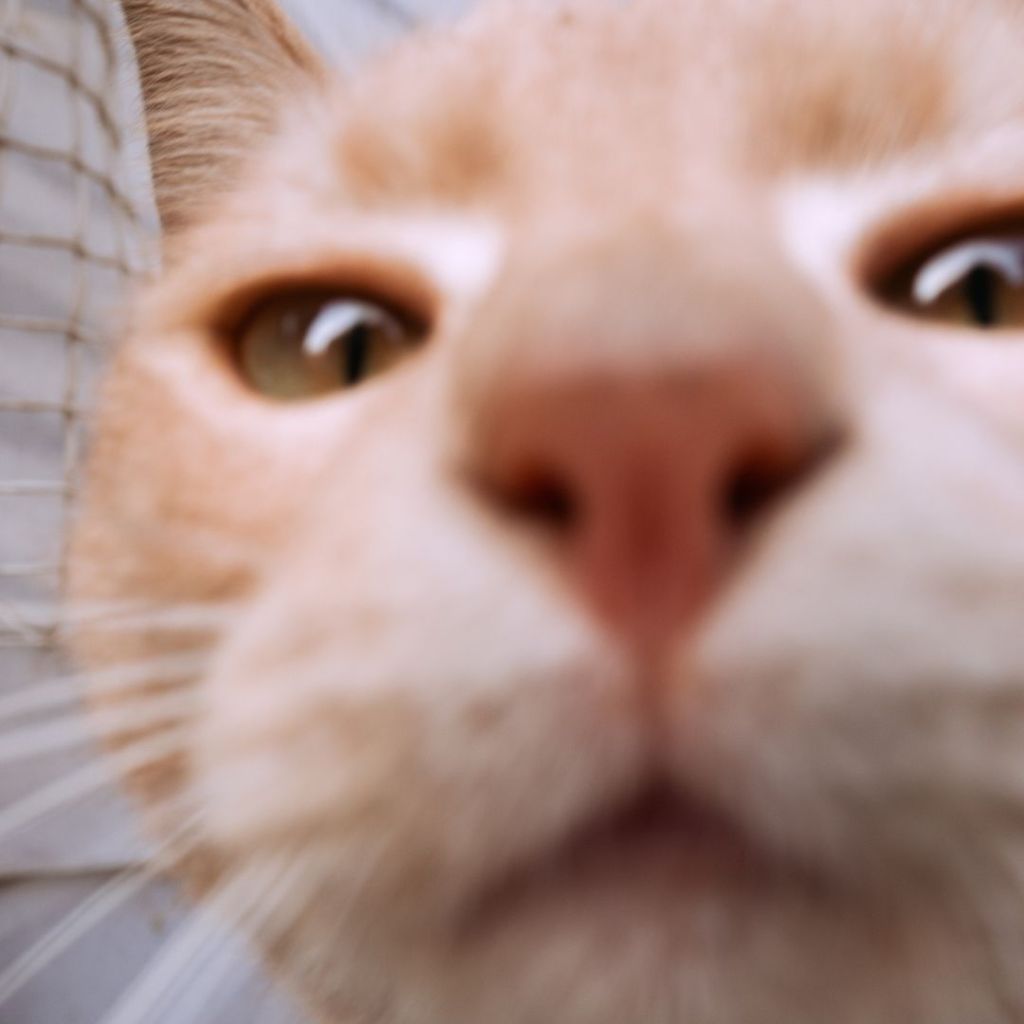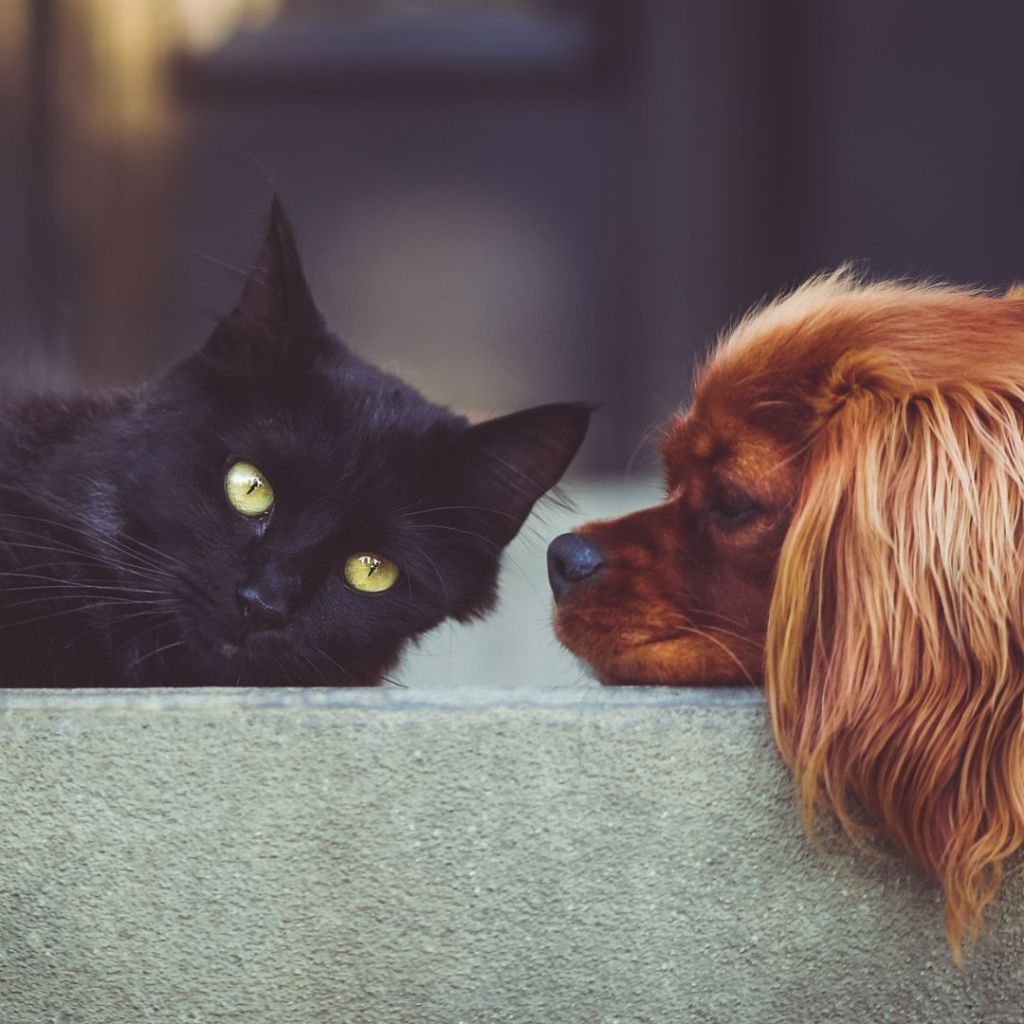
The Powerful Feline Nose: Surprising Smells Your Cat Hates
14 Apr 2023.
It may surprise you to learn that your cat has a very powerful nose. While you might find certain smells a little off-putting, your kitty will experience them in a much more intense way. Our felines react to different scents—both good and bad—very differently from us and it never hurts to understand which smells your cat hates. So, don’t invest in that expensive lavender scented cat litter or buy a new orange blossom candle just yet. Below, Cat in a Flat takes a look at your kitty’s sense of smell and the most common smells cats hate.
Table of contents
How strong is my cat’s sense of smell?
Your kitty’s sense of smell is the main way in which they identify people and objects. Whether it be sniffing out tasty treats, smelling a dreaded new feline in the neighbourhood, or turning up their nose at a smelly litter tray, your cat’s sense of smell is an essential part of how they manoeuvre through the world. It’s also incredibly sensitive and 9-16 times more powerful than a human’s. To put it in perspective, you have around 5 million odour sensors in your nose, Mr Whiskers has 200 million!

What smells does my cat hate?
As you can see, cats can be quite sensitive about any smell—good or bad. However, there may be a few scents your cat hates that surprise you.
Citrus
Any sort of citrus smell, whether it be orange, lime, grapefruit, or lemon can be particularly unappealing to Mr Whiskers. Citrus fruit peels can also be toxic for cats, though it’s unlikely a kitty will eat them due to their aversion to the scent. If you’re hoping to keep neighbourhood felines out of your garden, you can scatter citrus fruit peels around. Or, if you want to stop your cat from scratching the furniture, you can spritz it with some orange scent. However, this isn’t a recommended solution for furniture scratching as the smell can upset your cat. Instead, invest in great scratching trees your kitty will love to use!
Herbs and spices
Most of us love the smell of herbs like lavender, rosemary, and mint, but our furry friends are certainly not fans of these odours! Keep in mind that, like certain plants, some herbs are toxic to cats. These include mint (not to be confused with cat mint, which is safe for your kitty), eucalyptus, and geranium. Due to their toxicity, most cats hate the smell and tend to avoid them. The same goes for spices such as pepper, mustard, and chili.
Strong perfumes and fragrances
You may be tempted to place an essential oil diffuser by your kitty’s litter box to combat off-putting smells, but Mr Whiskers won’t appreciate it. Strong perfumes and fragrances such as eucalyptus, tea tree, pine and cedar can be really unpleasant for cats. Hence, your furry friend will most likely prefer unscented litter to pine-scented (or other odours). Instead of using fragrances like candles and essential oils to cover the smell of your kitty’s litter box, develop a daily cleaning routine. Otherwise, a dirty litter box or unpleasant strong fragrances may cause your cat to protest piss outside their designated bathroom area.
Household cleaners
There are quite a few indoor hazards for our fur friends, and household cleaners is one of them. These, along with liquids such as vinegar, rank high on the list of smells cats hate. Hence, while your cat usually follows you to the bathroom, you may notice they avoid it on days when you clean it!
Coffee
This is perhaps one of the most surprising smells that cats hate. While we humans love waking up to the smell of fresh coffee, our fur friends may not enjoy it quite so much. However, this doesn’t mean you need to give up your daily cuppa any time soon. Just be prepared for Mr Whiskers to keep their distance when you’re having your morning coffee!
Does your cat really hate how dogs smell?
Many of us like to proudly declare ourselves either ‘cat people’ or ‘dog people’ and there’s a common perception that dogs and cats simply don’t get along. The truth is, cats dislike change and will generally be wary of any sort of new addition to the family. This can include another cat, dog, small animal, or another human.
Therefore, cats don’t necessarily dislike the smell of dogs. Depending on the breed, some kitties may be completely indifferent to a dog’s scent and adjust quickly to their company. Other felines may be more cautious of dogs or associate their smell with a past negative experience. This is why it’s so important to take your time when introducing your fur friend to a new pup (or any new pet). If you do it too quickly, your cat may feel overwhelmed or upset.

How to avoid smells your cat hates
It’s impossible to completely avoid every single smell your cat might hate. If you did, you wouldn’t have anything left to cook or clean with! However, there are a few simple ways you can accommodate to your fur friend’s sensitive sense of smell.
- Avoid strong fragrances such as potent perfumes or essential oils. If you notice your kitty is steering clear of you after you put on perfume, this probably means they don’t like the smell. Consider avoiding wearing it or change it out for a lighter scent.
- Be careful with essential oils. Not only can they be toxic to cats if ingested, but the smell can be particularly irritating to our feline friends.
- If possible, switch to natural cleaning products or items that are unscented. Avoid lemon-scented cleaning products, or any other product with a particularly strong odour.
- Cat sitters should be very carefully about exposing their cat clients to smells they hate. When cat sitting, always wash your hands both at the start of your visit and at the end. This is especially important when meeting a new kitty for the first time. By doing this, you’ll avoid carrying scents (especially smells from other cats) with you that may upset your fur friends.
- And remember, each cat is unique. Some may be more adverse to certain scents than others and this can vary depending on their personality, past experiences, and socialization. Be patient with your feline and try to find ways to make your kitty feel comfortable.
Are you interested in learning more about your fur friend? Check out our blog posts on how to bring a shy kitty out of their shell and answers to your top questions about cat behaviour.
- #cat behaviour
- cat behaviour
- cat sitting
- smells cats hate


